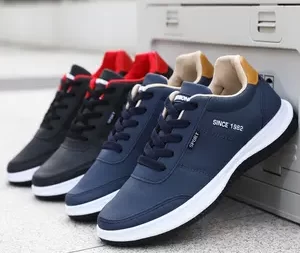In an age where information fragments at the speed of pixels, there’s a growing urgency to archive our digital footprint. The ephemeral nature of our daily digital interactions — a fleeting thought captured in an online notepad , a link saved to read later, or a recipe curated from a blog — those moments are transient. Often, we hit ‘delete’ or overlook the archive button, unwittingly letting bits of our intellectual lineage disperse into the digital ether. This is where the idea of creating a digital archive becomes not only resonant but also indispensable.
The Importance of Long-Term Digital Preservation
Why is a personal digital archive important? Think of all the knowledge, discoveries, and personal records that are lost when digital materials are not preserved. Our attic of yesteryears is no longer filled with letters and photographs but encrypted in hard drives and cloud storage. Digital archives are the threads we weave through time, offering future generations a glimpse into our lives. They’re also instrumental to our own personal sustainability — professionally and personally.
But here lies the paradox: while the quantity of our digital content multiplies exponentially, that which we preserve shrinks. Algorithms dictate what we view and what we remember, but what about what we know? The power to curate and preserve knowledge is still within our hands, and it begins with our online notepads.
Curating a Digital Experience That Is Uniquely Yours
Creating a digital archive doesn’t mean you’ll turn your home into a data center or that you should never delete your email history. It’s about being selective, intentional, and detailed with what you choose to immortalize in your digital footprint.
An online notepad is your canvass, and just like an artist, you should choose your strokes with purpose. You might wonder, what do I choose to immortalize? Start by asking yourself what’s truly important to you — what you believe you may wish to access or share in the future.
Memory is associative, so your digital archive should be thematic, tracing the evolution of your thoughts, work, and life. You could have a notepad for lifelong learning, where you compile articles and insights that shaped your thinking. Another for personal milestones, where you document achievements and key moments. Or perhaps, a notepad for creative expressions, like poems, sketches, or even your digital music compositions.
Tools to Sculpt Your Digital Monolith
The beauty of using online notepads is the ease and convenience they offer. You can organize by tags, create multiple pages, link notes to one another, and search across your entire database instantly. Tools like Evernote, Google Keep, or Notion are versatile significances that adapt to the contours of your personal archival needs.
Evernote
Evernote’s strength lies in its stability and focus on note-taking. It has been a pioneer in the space, offering a rich ecosystem of apps and integrations that make it easy to capture a variety of media forms.
Google Keep
This app from the Google suite excels in simplicity and synchronization. Keep’s interface is straightforward, making it ideal for quick, on-the-fly notes.
Notion
Notion, the new kid on the block, is a powerhouse, permitting you to create complex interlinks between your notes. It’s more than just an online notepad; it’s a workspace-builder that can grow with your needs.
Crafting the Narrative
While the tools define the medium, your curation will define the narrative. Each entry, whether a snippet of code, a design mockup, or an article in the making, is a page in the story of you. As you add to this, ensure there’s a meta-level consistency in how you organize your archive.
Think of it as a garden; some notes will bloom and evolve over time, others will remain as they were the day they were captured. But all contribute to the ecosystem that is your archive, a testament to the stories you choose to tell.
Your digital archive won’t just be a record-keeper; it’ll be a co-author of your legacy. It’s a declaration of your values, pursuits, and missions. It’s a way to preserve not just what you did, but who you were and what you stood for. In the end, your well-crafted digital archive might just be the most detailed and intimate biographical record you leave behind.


